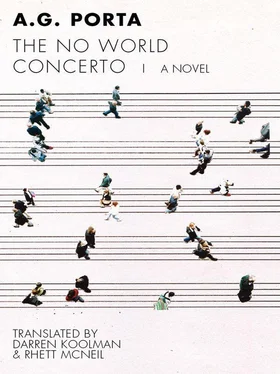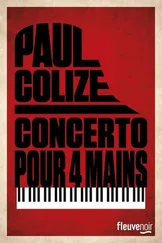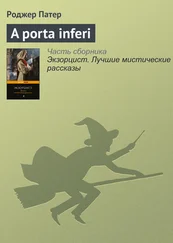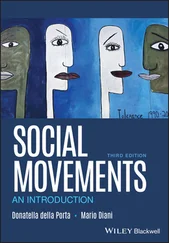The girl is speaking to her mother on her cell phone while waiting in the airport terminal. Her mother is annoyed, not only because her daughter was late for all her appointments, but her concert performance left a lot to be desired. How do you know? asks the girl. Who do you think they call when you don’t show up on time? Who do you think they come crying to when your performance isn’t up to scratch? The girl mumbles some excuses, saying at first that she went to the apartment to get in some last-minute practice on the piano and also to fetch her dress, but then she ends up admitting her real motive for going was to satisfy her curiosity in her mother’s cousin. She can no longer hide from her the fact she’s run into him. She’s seen him twice already, she tells her mother, who doesn’t believe her in the least. But she doesn’t realize her daughter also went home to get some photographic confirmation. She asks her where and how she ended up seeing him, insisting it couldn’t be their cousin but only someone who bears a passing resemblance. Why doesn’t her mother believe her? In the following scene, she’s back in the neighboring country’s capital, and it will be obvious to the audience a few hours have passed since the girl’s conversation with her mother. It begins in the middle of another conversation about which we know none of the preliminaries. It’s around midnight, and the girl and her father are walking back to the hotel after dining at a nearby restaurant. They’re talking about her future as a writer. She pouts with annoyance, because whenever he talks about her future, she can hear all his misgivings in his voice. Perhaps it’s because he too wanted to be a writer when he was young. He no longer writes. He says there’s no point; everything’s already been said, more or less. By reading a certain number of books, one can see that every subject and style, every possible form that could ever exist has already been anticipated by someone else. Music, on the other hand, gives the performer a chance to recreate a chosen piece. According to him, there are only three reasons people write: for money, for fame, or to realize a deluded ambition to be original. So for which reason do you suppose I write? she asks her father. He shrugs his shoulders and maintains that routine expression on his face which could be interpreted to mean anything. Why can’t he believe she could write as well as the novelist he admires so much, the one who wrote about jealousy and the passage of time? The girl aspires to be ranked with the Olympians, something her father doesn’t even think her capable of dreaming about. She could try something unprecedented like writing a story without a theme. She’ll do it, one of these days, but not now. In music, someone said it took years to be able to compose without a theme, and she doesn’t feel prepared to try it in her writing. She’d like to construct a theory of atonality, but applied to literature: the dodecaphonic novel, but she doesn’t dare mention it to her father. Come to think of it, her father is always hindering her ambitions. Not by erecting obstacles, as such, but he builds roads and bridges that lead nowhere. If their conversation were taking place in the hotel, the girl would go to her room, but walking back together, she just silently endures it. If she’s managed to succeed as a concert pianist since the age of thirteen, why couldn’t she be a writer at sixteen? She wonders if her precocity is limited to music. It’s been a while since her father pronounced her name with a “ka.” The girl sticks her fingers in her ears. Things aren’t much different with her mother. She’s always had a cold and distant relationship with her. She’s like a corset, fitting her to a daily schedule, and the girl feels as uncomfortable talking to her about the future as she does with her father. Plus, her mother dismisses all literary fiction as complete nonsense. The girl thinks if her father was still writing, he’d only be doing it for the money. The screenwriter rereads the scene and wonders whether he should bore the audience with so much dialogue. Maybe he should make some cuts. He’s still in doubt after rereading it several times, and ultimately chooses to postpone his decision. Perhaps he only wrote it for the girl. Once she’s read it, he may decide to remove her from the story altogether. He needs a turning point though, something to move it in another direction. Why has everything already been said and written? he wonders. The same thought probably crossed the minds of the greatest writers, both of this century and the last, and of every century before that, all the way back to antiquity.
She’s so tired, she could sleep for two days straight, so she decides to call him on the phone instead of visiting. He likes older women, she says, referring to the young conductor. That’s why he always has a photo handy whenever we have sex — a photo of my mother, or some other woman. Sometimes he likes to have an older woman present. The screenwriter wants to know if the older woman joins in or just watches. The girl says she only watches. The screenwriter needs to know where, and under what circumstances. She’s a hotel employee, the girl replies timidly. He wants to know every lurid detail. The woman watches while reading aloud random passages from the philosopher, W’s, greatest work — something like “2.063 The sum-total of reality is the No World.” The woman usually only watches and reads, but occasionally she lends a hand. Sometimes she’s naked; sometimes she’s dressed in her uniform. It all depends. Depends on what? pants the screenwriter. On how much she gets paid.
Sundays are strange, thinks the screenwriter, who’d rather every day was a Monday, Tuesday, or a Thursday, but never a Sunday. The silence on the streets bothers him, and all the closed stores only dampen his mood further. He puts on his navy-blue blazer and looks in the bathroom mirror. It may seem an odd quirk, but it’s important for him to leave the jacket unbuttoned so it isn’t pulled tightly around his waist, since his stomach has been growing outward for some time. At his age, most men have lost the svelte physique of their youth. In exchange for the loss though, he tells himself he’s gained in stature, become more distinguished. He can’t remember when he bought the jacket, but he doesn’t feel the need to continually change his wardrobe in order to keep up with fashion. Nowadays it would take several seasons for his clothes to begin looking outmoded to him. He runs his fingers through his hair, which is still plentiful after all these years, more so than many younger men’s, and he reckons that this, along with his deportment, is what makes him attractive to women. Moreover, his sage old professor’s aura makes him respectable in the eyes of younger students, who’ve always perceived him as something of a bohemian. Maybe I’ll teach again someday, thinks the screenwriter, amusing himself with the notion, assuming he ever reaches the paradisiacal destination to which he wants to travel with the girl. With his free hand, he touches his pocket to check he has his notebook, and then taps his cane against the floor. The carpet deadens the blows, as if deadening his thoughts. The only true paradises are the ones that are lost, he recalls. It’s a phrase by the author who uses time as a lens, the actor and audience together, in an attempt to recover a world that all but disappears as soon as the actor leaves the stage, and the audience disperses. Not at all surprising coming from an asthmatic recluse who shut himself away in a room with cork-covered walls in order to prevent the outside world intruding; an ailing melancholic who drowned himself in the depths of solitude. Sundays are strange, the screenwriter thinks as he looks down on the street from his window. The woman in the building opposite must be up by now. He’d call her, if he had her number. There’s no harm in striking up a friendly conversation with one’s neighbors. Maybe he’ll look it up in the phonebook one of these days. At the café in the plaza, he drinks his coffee, contemplating the way the neighborhood stretches away and disappears on the horizon. A couple of tourists are sitting in the bar on the other side of the fountain, next to a man about his own age, whom he’s seen before. He’s a regular who usually reads his paper there in the morning. If someone took a photograph of the two of them together, they’d capture a peculiar scene, a snapshot of two people who don’t know what else to do to with their free time. Which reminds the screenwriter of the author the girl’s father admires so much, of those long monologues wending their way through memories of former times, recalling the outdoor excursions and social gatherings of high society: a beautiful, distant epoch, which someone like the girl could scarcely appreciate. The girl would’ve been a wonderful success in the salons. She’d be doing what she already does in the concert halls. Although concerts are more impersonal, being beholden to sponsors, promoters, and impresarios instead of a single patron. At any rate, it’s Sunday, and it takes a great effort for the screenwriter to get up and leave. He doesn’t for a moment suspect the man on the other side of the fountain is anything other than an incorrigible reader like himself; he doesn’t suspect, for example, that he might be following him; and even if he did, he’d never in a million years suspect the real motive. That the reason he’s being followed is the girl.
Читать дальше












